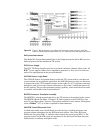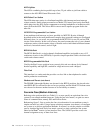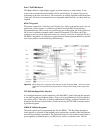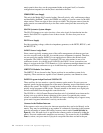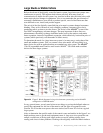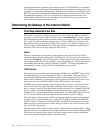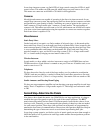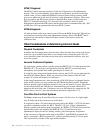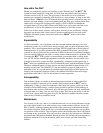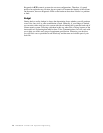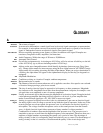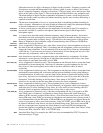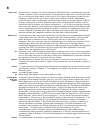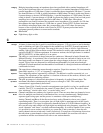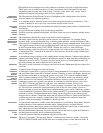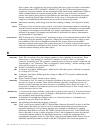Chapter 8 - Determining Intercom Needs 127
How old is Too Old?
Should you completely replace your existing system? Probably not! The RTS
™
TW
system has been around for a long time. As such, there are products that have been in
constant service for 20-25 years. The good news is the newer two-wire conference
products are completely compatible with the older two-wire products, as long as the older
units are Phase 3. Phase 3 (circa 1979) means that operating power is required on only one
channel, not both. Adding a source assignment panel and more user stations can be done
rather easily as long as the existing power supply (a PS10 or PS50) can handle the
increased capacity. Even an 803 system can be added to an old system with little or no
modification, as well as the addition of a front-end matrix to the older system.
In the case of older matrix systems, such as those currently in use worldwide, existing
keypanels can be used with a new system. Even those panels used as far back as the
CS9400+ disk based system, can be used with a new ADAM
™
matrix with a little
modification.
Expandability
As discussed earlier, one of problems with the extended medium and larger two-wire
conference systems is you will need to know precisely what you need in advance of the
purchase. This is more apparent when specifying IFB, ISO, and Point-to-Point forms of
communications. If you have purchased the 4001 4-channel IFB system, you will find
yourself in a bit of a pickle the day you need six IFBs! In the case of conference channels,
you can certainly add more belt packs or master stations without much of a problem. This
is because the RTS
™
TW system is a current based system rather than a voltage based
one. All TW stations exhibit high impedance to the line, and hence, do not load it down.
In terms of the matrix systems and their expandability, it depends on the application. A
Zeus
™
matrix is expandable up to a 24x24, and indeed comes with the maximum 24 ports.
Therefore, additional panels or other devices can simply be added without having to do
anything to the frame. The ADAM™-CS can be ordered in groups of eight ports to a
maximum of 64. It is a good choice for medium applications where a Zeus might work
initially, but expansion is foreseen. Finally, the standard ADAM can be used in larger
applications from 8x8 to 136x136 and beyond via frame expansion.
Interoperability
One of the key things to consider in determining intercom needs is when a television
station is owned by a network or has a mobile vehicle already with an RTS
™
matrix.
Additionally, if there is a need for trunking to other intercom systems, which are of the
ADAM or Series 9000 vintage, a similar system should be specified. With trunking, as
described in other sections of this book, up to 20 intercom systems can work intelligently
with each other, as if they were one very large system. This sets up the ability to use the
scroll list on a given matrix keypanel to access the Director in another intercom system,
either locally or halfway around the world.
Maintenance
Less is more, so they say, and so it is with the intercom (i.e. less wiring the better). In the
age of the digital matrix, even with its fewer wires, comes another welcome arrival, AZ-
Edit. Virtually, anything regarding the health of the system may be determined through
this intuitive program. Gone are the days of troubleshooting audio because any keypanel
can produce a tone to follow. The crosspoint screen can be displayed to show why people
are hearing at any given point. You can even show what keys are activated on a miniature
keypanel at the configuration terminal. Recent advances also include software upgrades to
keypanels and matrix via active download, audio level control, and other interesting
features.



